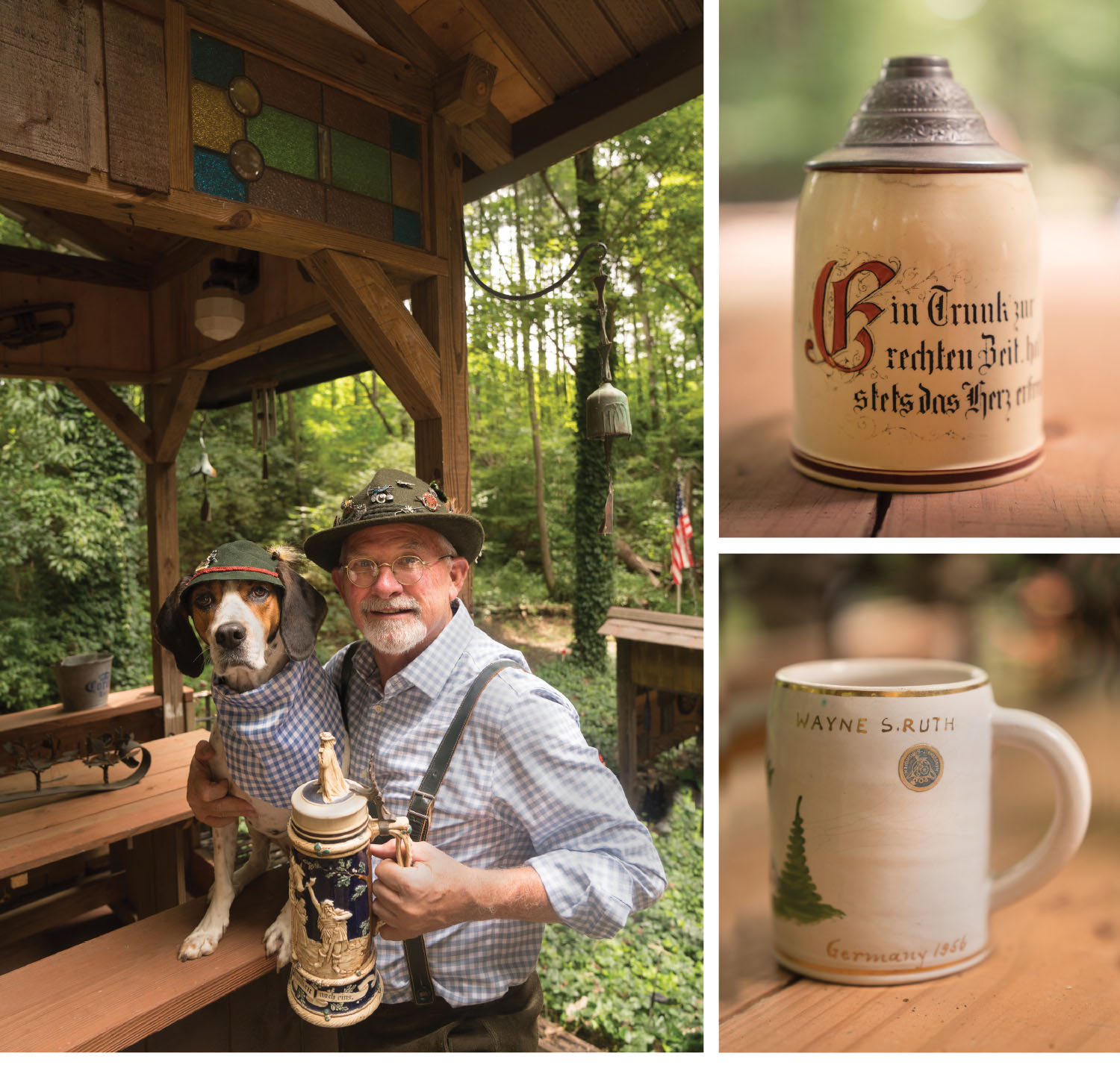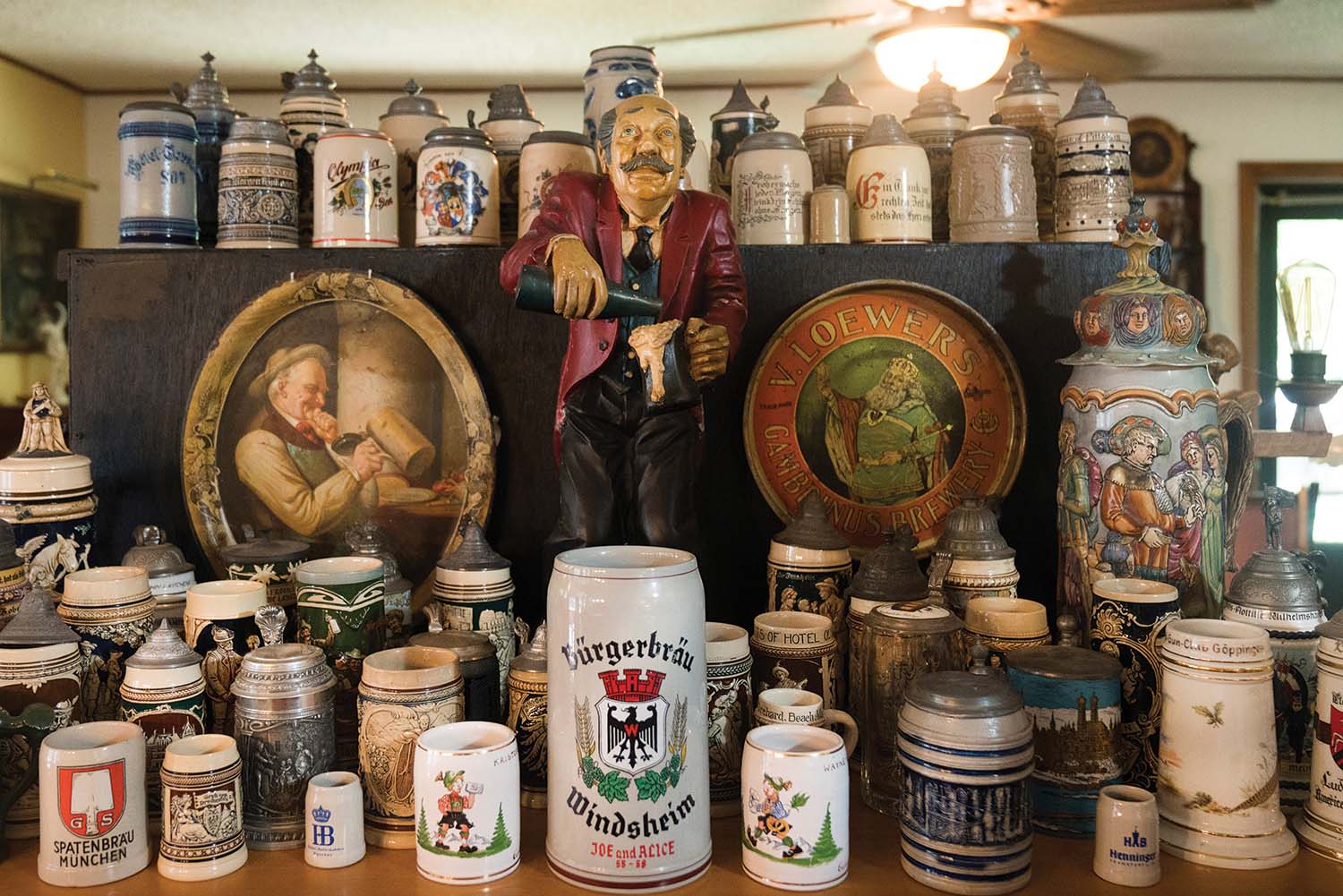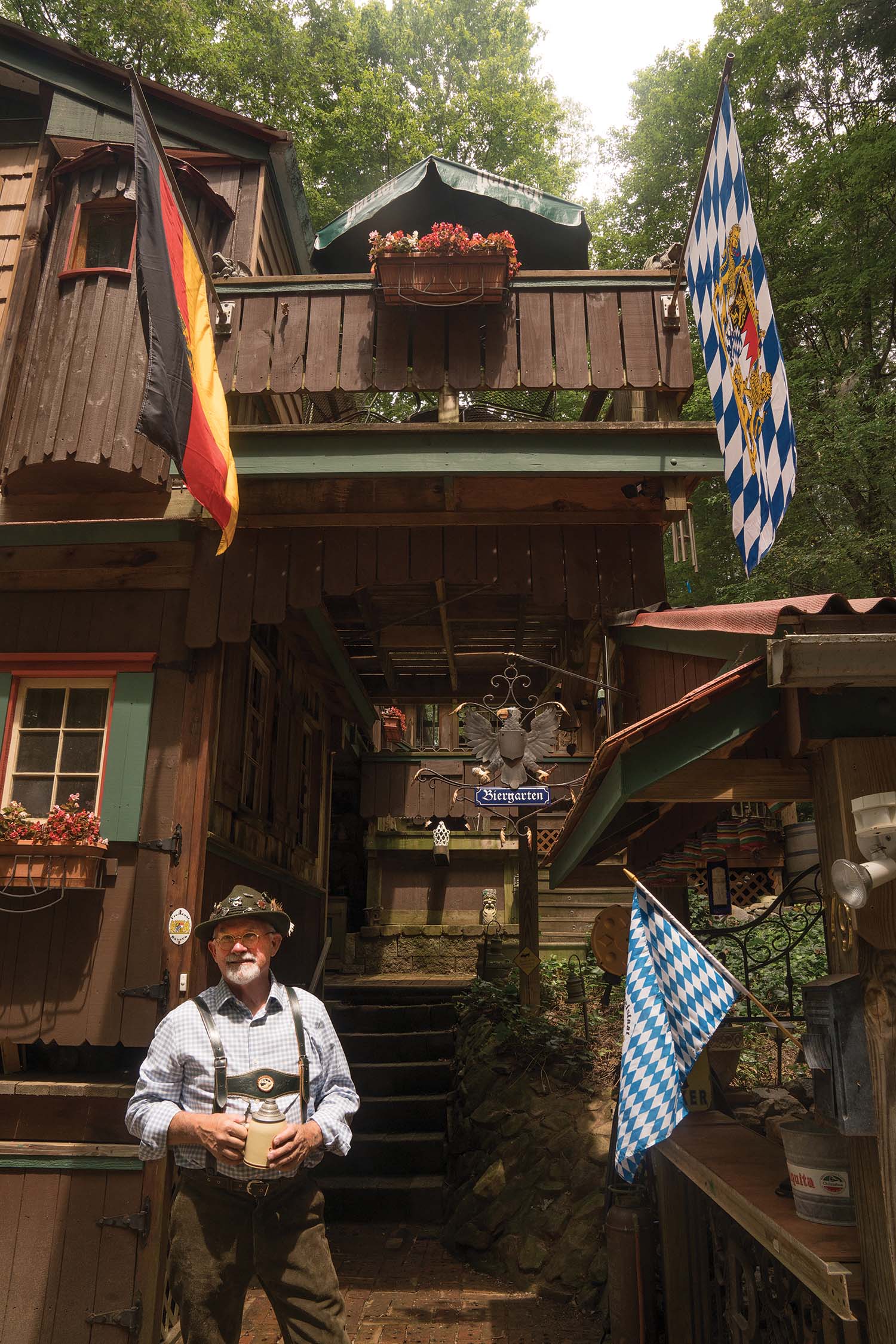
Photos by Audrey Goforth
When the rental house he was living in burned down, Wayne Ruth of Haywood County bought property on a rural lane named after a famous German city. The retired teacher already had strong ties to Germany, so the coincidence, he says, “sealed the deal.”
Since then, his home in Clyde has become a living homage to that country’s culture. Ruth has a biergarten (beer garden) that stretches several levels in his backyard, a stack of bierdeckels (beer coasters) from his favorite pubs, and a bar situated in his kitchen.
Just don’t ask him to pour a brew into one of the more than 70 beer steins that regally sit next to the bar. Those are off limits for lager.
Ruth says that while he likes a frosty beer, he doesn’t use these collectibles to help quench his thirst. “Then I’d have to wash them, and I don’t want to handle these any more than I need to,” he explains.
Some of his steins were made early last century, and others have a meaningful backstory. Ruth still has his first beer stein, given to him as a child in 1956, that depicts a child carrying, yes, a beer stein. Friends have given him steins over the years, and Ruth tries to find them if he happens to be at an antique shop or estate sale. But he’s casual about it.

Photo by Audrey Goforth
“I don’t go out looking for them,” says Ruth, who knows there’s a huge online market for this type of pottery that he could browse if he chose. “It’s just if I see it, [I might buy it]. It’s more fun when you run across it than when you seek it out.”
He grew up in the suds-loving European country and graduated from high school there, where his father was stationed for military service. “We lived all over, mostly southern Germany, Bavaria,” he says. “We started in a small town, Oberdachstetten, moved later to Mannheim, then on to Göppingen, near Stuttgart. I lived in Heidelberg for a while and did my military service in Babenhausen … it was not unusual to see [beer steins] growing up.”
Part of his collection includes a stein that belonged to his brother Kris, given as a graduation memento. “You could get a class ring or a class stein,” Ruth quips. (Kris has his own collection, some of them displayed at the biergarten.)
Steins date back to the 14th century; the lids were meant to keep flies out of the ale. They’re made of pottery, glass, porcelain, or silver and are typically etched or painted with a variety of scenes and characters, usually sculpted in relief. They’ve become quite collectable over the years and can fetch in the hundreds and even thousands of dollars.
Ruth also collects model trains and wine openers, but it’s the love of beer that stands out in his home. Near his back door are several walking sticks he’s adorned with local beer-bottle caps and logos. On his bar are some of his bierdeckels. “In most of the gasthauses [inns] I frequented [in Germany], beer is served on a coaster or bierdeckel,” he says. “The waitress keeps your count by writing Roman numerals on the deckel. She counts them up when you’re ready to leave. I still have some of mine from those days.”
His love for beer and recycling objects flows out his back door. That’s where Ruth, who’s always accompanied by his hound mix Molly, works on the biergarten, a project that never stops growing.
For the past 15 years, Ruth has volunteered at the Asheville Area Habitat for Humanity ReStore. And in 2015, his biergarten, made of scavenged materials from the store, won the nonprofit’s annual re-use building contest in the “Best Live/Work Space” category. What started as a relaxing hot-tub space took on a new direction after his return trip to Europe several years ago. Now there’s a sitting area. Soon, he wants to add a pizza oven.
“It has turned into a multi-level event,” Ruth says. Not surprisingly, festivities get ramped up in the fall. “I now try to host an Oktoberfest each year,” he says. “There are lots of beers, sausages, sauerkraut, and other traditional dishes, [including] my brother’s wonderful, authentic German potato salad.” He’s also worked the Asheville Oktoberfest several times and calls it “pretty nice.”

Photo by Audrey Goforth
However, this guy who enjoys the tranquil country life chooses to skip the original 16-day Oktoberfest over in Munich. “I’ve visited just before then, but the real event is too crazy.”
Winners of the Asheville Area Habitat for Humanity ReStore’s ReUse Contest are announced every fall. For details and more information about events, see ashevillehabitat.org.
